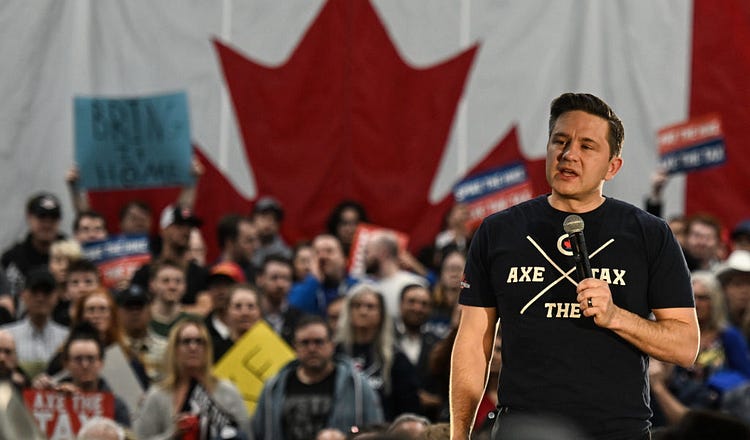
For President Trump, making America great again in his second term includes tariff threats against Canada, along with talk of turning America’s northern neighbor into the 51st state. What that’s mainly achieved so far is to make Canada woke again.
Prior to January 20, Conservative Party leader Pierre Poilievre had been cruising in the polls, and with elections coming this year in Canada, North America seemed headed for a right-leaning political bromance between a President Trump in Washington and a Trump-lite Prime Minister Poilievre in Ottawa.
That was before Trump got elected and began talking about 25 percent tariffs on Canadian goods (10 percent for energy), which would likely wreck Canada’s economy.
One poll showed that four in ten Canadians see Poilievre and Trump as alike and that is hurting him as “Canadians increasingly associate Poilievre to Trump’s negative rhetoric aimed at Canada,” said Mark Marissen, a Liberal party strategist.
For the first time since 2021, Prime Minister Justin Trudeau’s Liberal Party is ahead of the Conservatives in the polls. If an election were held tomorrow, 38 percent of decided voters would choose the Liberals, while 36 percent would back the Conservatives. This is a massive shift—just six weeks ago, the Conservatives were leading by 26 points.

